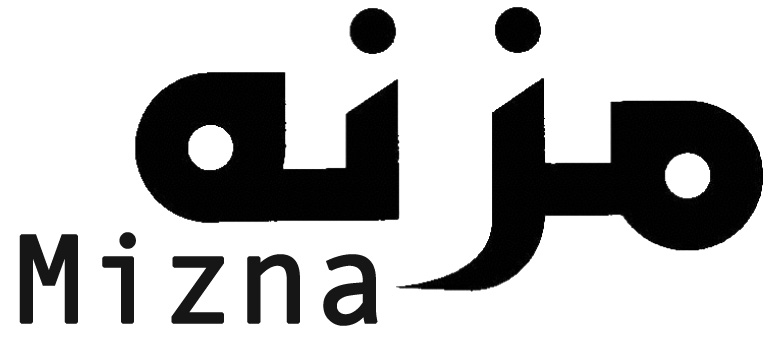Guest Review: Mars at Sunrise (2014)
Dear readers, below is a guest review of Mars at Sunrise by essayist and film enthusiast Ali Hazzah (whose byline links to his own review of The Dupes). Hazzah's views do not necessarily reflect my own, but I am sure that you will enjoy his perspicatious review.
Mars at Sunrise is a poetic yet engagé meditation by director Jessica Habie on the refusal by its main protagonist, Khaled (Ali Suleiman), to become an Israeli informant—despite intense external pressures exerted upon him in captivity.
This is Habie's first feature-length film, for which she also wrote the screenplay. It was produced by Baher Agbariya and Nirah Shirazipour. Habie is a Jewish-American graduate of NYU's Tisch school of the Arts, with several award-winning documentaries already to her name, including the Best Documentary Short award winner at the 2008 Tribeca Film Festival Mandatory Service.
Habie explores how the West Bank has become a social incubator in which certain forms of perversion have flourished, but does so without the didacticism and agenda-driven plot developments one often finds in less sophisticated examples of the genre.
Inspired by the life story of Hani Zurob, many of the scenes in Mars were drawn from Zurob's testimony as to the torture he endured at the hands of Israeli intelligence. It also drew on supplementary accounts of the Israeli occupation of the West Bank, such as that of Wajee Tameise, who personally experienced one of the key opening scenes in the film.
The screenplay was considerably influenced by an original soundtrack by Tamir Muskat, which was recorded prior to filming. According to the director, the fluid interplay between Khaled and Eyal, the film's protagonist-antagonists, grew out of "the guitar and oud performances of Mohsen Subhi (Ramallah) and Itamar Zeigler (Tel Aviv)" during various recording sessions.
Khaled and Eyal--slacked and clenched
The plot is straightforward, although the narrative is recounted in a highly allusive, fragmented, montage-driven, flashback-heavy style. It portrays a man finding refuge in his art, when confronted by vicious oppression.
Khaled is a talented and influential Gaza-born Palestinian artist, a painter now living in Ramallah who is arrested because he has chosen to remain in his studio. The studio has suddenly and arbitrarily become a target of Israel's ever encroaching land assimilation policy.
Jailed, he refuses to submit to repetitive and prolonged questioning by Eyal (Guy El Hanan), a conflicted artiste-manqué Israeli soldier who serves as his prison interrogator when not manning checkpoints.
Mars is structured as frame story. Azzdeh (Haale Gafori) is a young Jewish American poet with an Iranian name. She does not know Arabic and is curiously unfamiliar with the methods Israelis employ to keep the Palestinian population in the West Bank under subjugation.
At a checkpoint in Jenin, she is approached by Khaled, who is attracted to her. With her taxi broken down, she accepts an offer by Khaled to give her a ride. They arrive at the next checkpoint and are stuck behind a long line of Palestinians waiting in the hot sun.
Things have come to a standstill by a soldier's decision to take a nap.
It is Eyal.
As they wait, Azzdeh hears Khaled's stark but ultimately inspiring story, which took place several years earlier.
Mars is not just a facile movie with a naive, uplifting message.
Dominance and submission are often a necessary subtext in films about the West Bank. Mars is no different in this regard. It offers a textbook visual example of the Foucauldian conception of the strategic use of power to conceptualize and justify the physical and emotional disfigurement of marginalized Palestinians.
Moreover, a homoerotic subtext strengthens this association. If Eyal is an artiste manqué, then it is finally his willingness, if not desire, to be treated as a model, both in actuality and within the context of the imprisoned artist's imagination, that seals the deal.
Habie seems to be telling us that the failure of pervasive Israeli reductionism, its zoomorphism, if you will, vis-à-vis Arabs, is driven both by subliminal desire and a disorienting recognition of increasing creative impotence, irrespective of internalized claims of ethnic superiority.
As things start to come apart for Eyal, the film seems to float as we watch a series of dream sequences that portray (with gorgeously liquid camera work by DP Xavier J. Cunilleras) the psychological impact of the Occupation on both parties to the conflict.
Can art triumph in the end against an implacable foe?
Yes, says Habie. But it's worth keeping in mind that Hani Zurob was compelled to leave Palestine and live in France in order to regain his personal and artistic freedom.
This visual treat of a film is well worth seeing, particularly by movie lovers who may already be emotionally invested in some historical interpretation of the Palestinian-Israeli narrative.
A promising start by a fearless young director.
Mars at Sunrise is being shown at the Quad Cinema in New York starting on Feb 7th.
Mars at Sunrise Trailer HD from Mars At Sunrise on Vimeo.

 02-5-2014
02-5-2014
Reader Comments